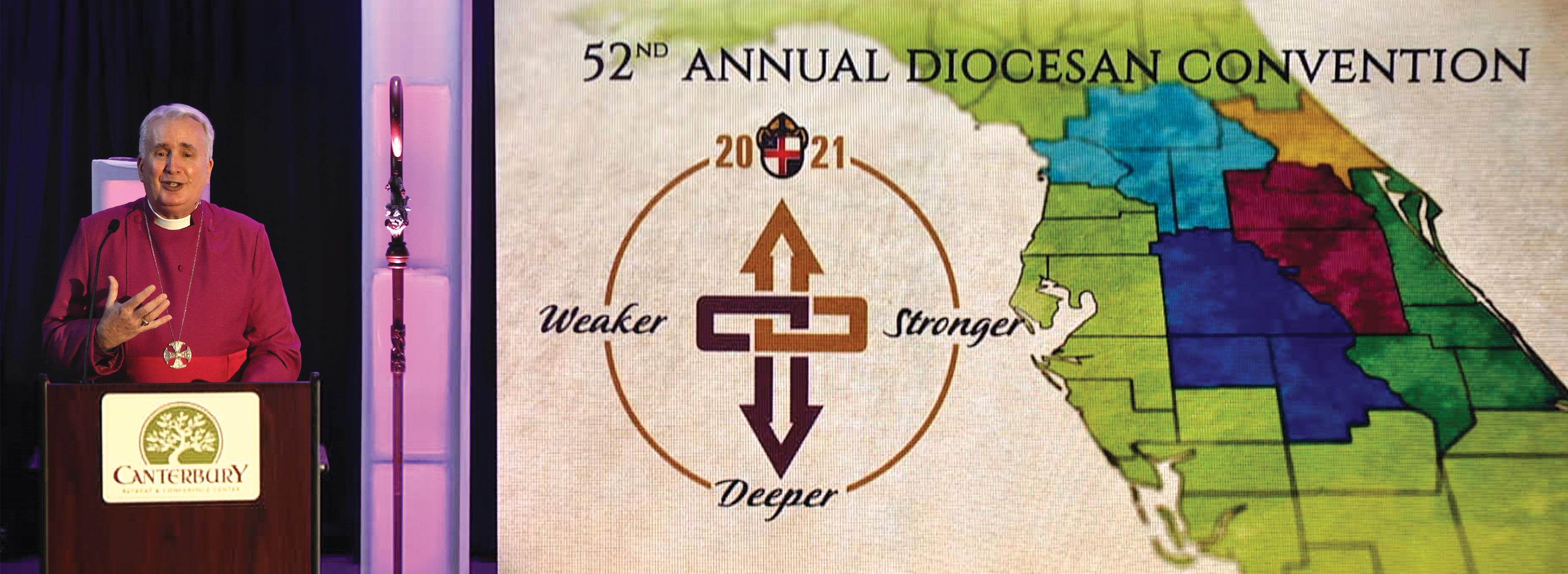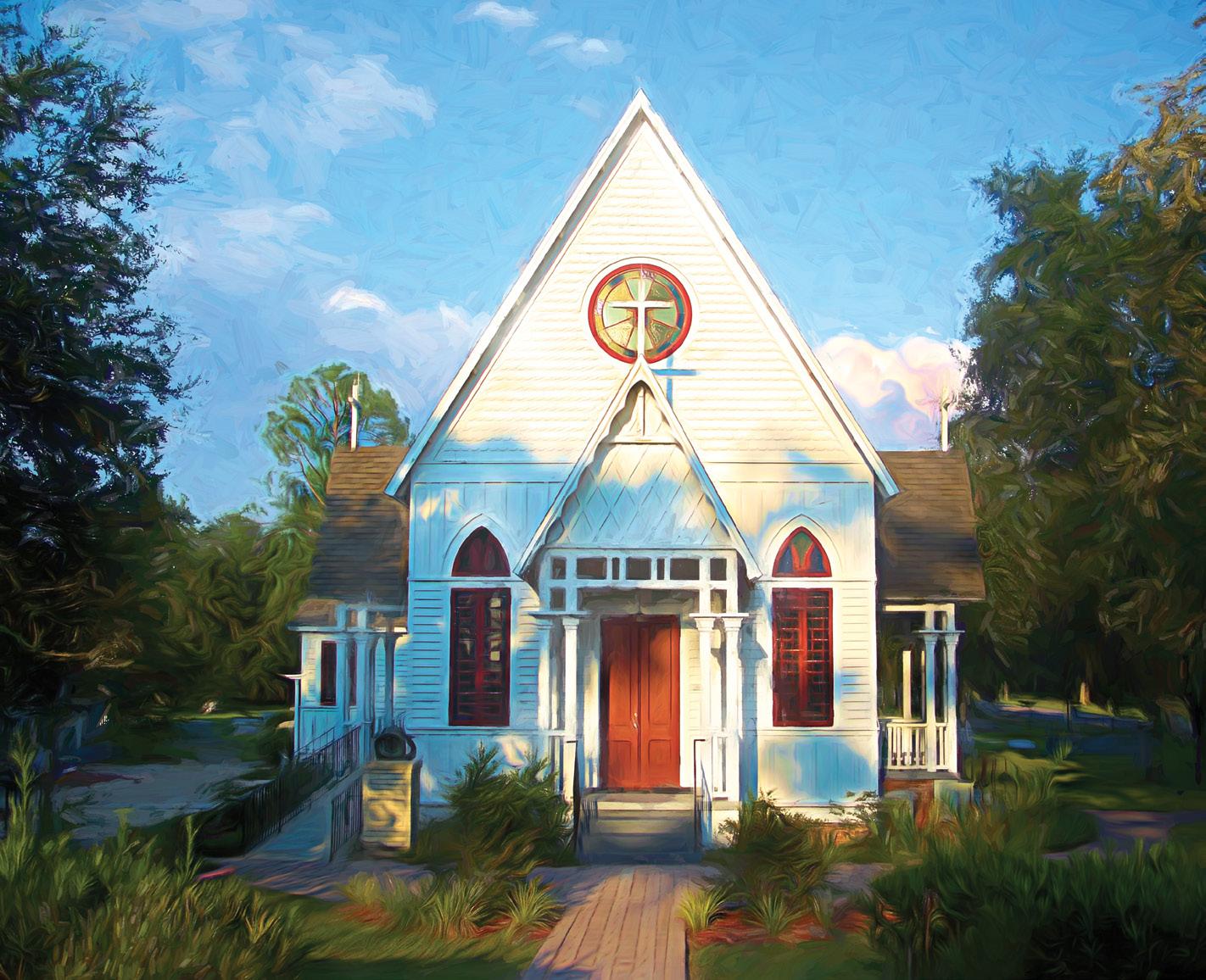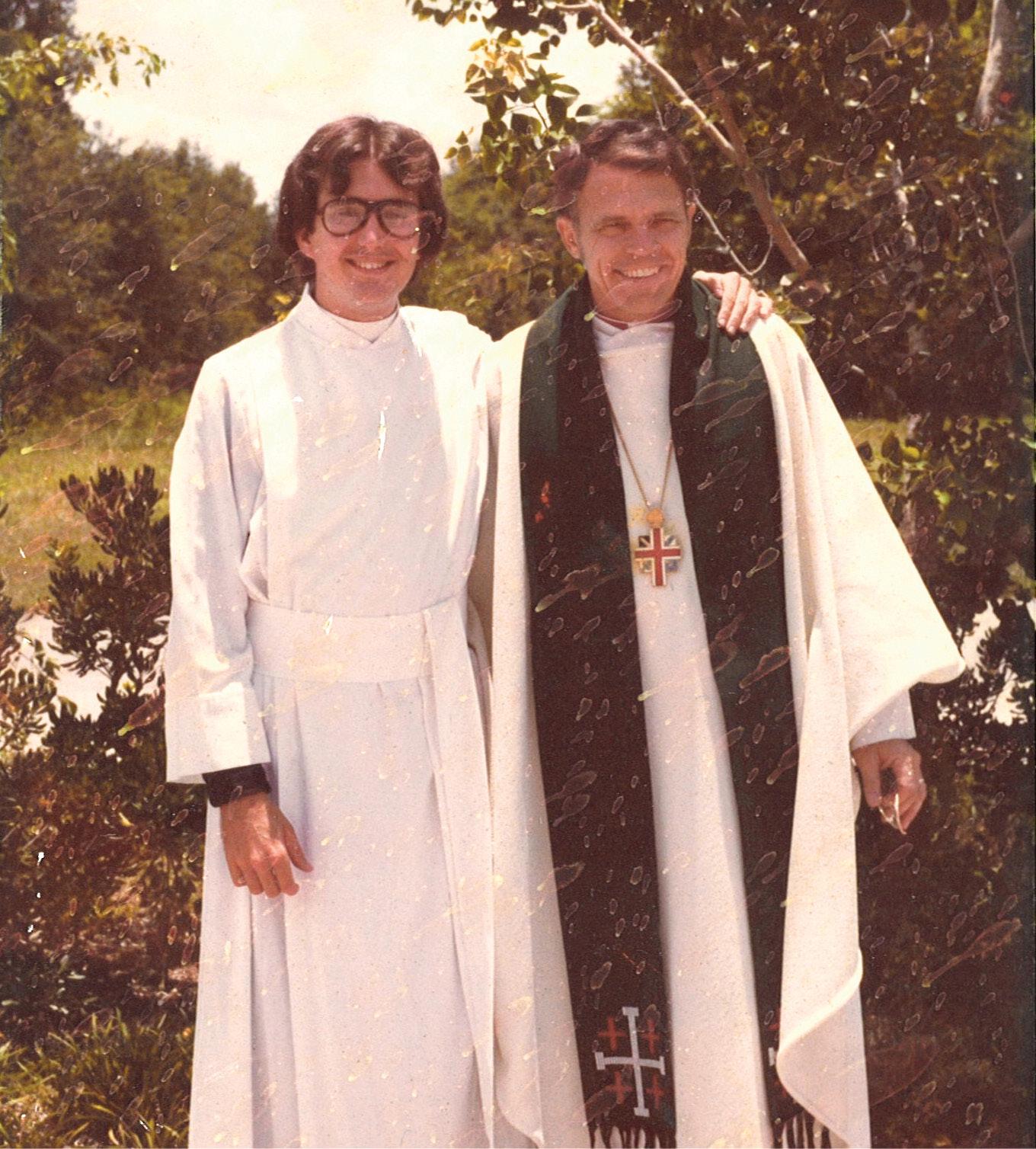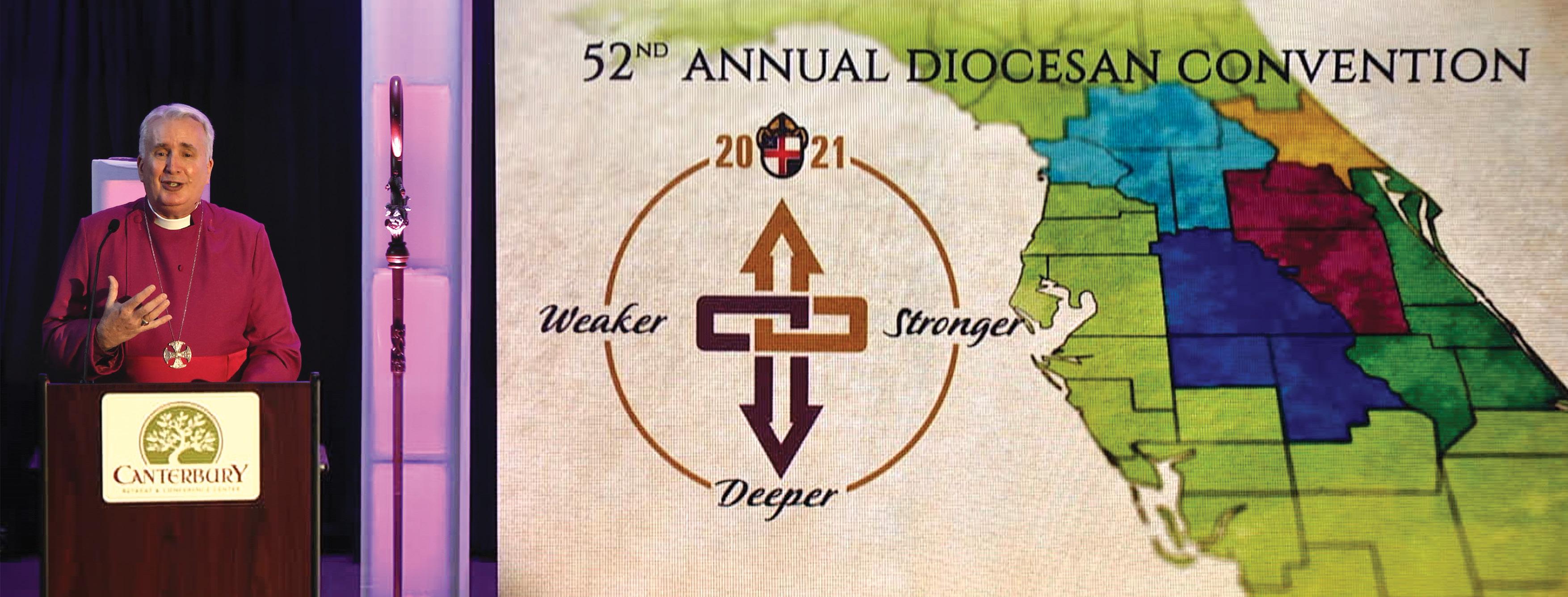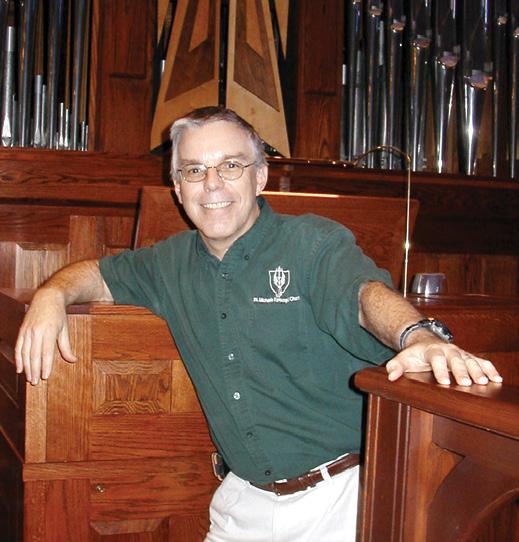
2 minute read
Alleluia’ Mornings in Easter

Advertisement
Mornings in Easter
BY THE VERY REV. DR. REGGIE M. KIDD, DEAN, CATHEDRAL CHURCH OF ST. LUKE
Our bodies sustain life by a rhythm of breathing in and breathing out. The Daily Office provides a parallel rhythm by which our inner being may sustain life as well. Reading scripture is the way we breathe in. The combination of worshipping and praying is the way we breathe out. Breathing back praise is as important as breathing in knowledge. During the season of Easter, the Daily Office commends the song “Pascha nostrum” (“Christ Our Passover”), a collection of verses from Paul’s letters that Thomas Cranmer pieced together in the 1540s. And throughout the Easter season, the Daily Office commends reading or singing it at the beginning of morning devotions. “Pascha nostrum” is three stanzas long, each stanza focusing on a different aspect of our Easter hope. The first stanza consists of 2 Corinthians 5:7-8, bracketed by alleluias:
Alleluia/ Christ our Passover has been sacrificed for us/ therefore let us keep the feast/ Not with the old leaven, the leaven of malice and evil/ but with the unleavened bread of sincerity and truth. Alleluia. As blood from the slain Passover lambs led the angel of death to pass over the houses of the Israelites, so Christ’s shed blood rescues his people from sin and death. In Paul’s writing, the unleavened bread of the Jewish Passover comes into sharp focus for those experiencing Christ as their Passover. They start a new life characterized by sincerity and truth, leaving behind an old life marked by slavery to malice and evil. That’s worth at least a couple alleluias. The second stanza consists of Romans 6:9-11and concludes with alleluia:
Christ being raised from the dead will never die again/ death no longer has dominion over him/ The death that he died, he died to sin, once for all/ but the life he lives, he lives to God/ So also consider yourselves dead to sin/ and alive to God in Jesus Christ our Lord.
Alleluia. There is a staggering likeness between Christ’s death and ours. Because he died once, he can never die again. Because in our baptism we too “die,” death no longer has any claim on us. That’s not just a promise that we are going to heaven. It means that in the very present, we can say to the walking death of a sinful life: “That’s not me anymore.” We can walk – we really can – “alive to God in Jesus Christ.” And, yes, of course: alleluia. The third stanza consists of 1 Corinthians 15:20-22, and rounds out the whole song with a final alleluia.
Christ has been raised from the dead/ the first fruits of those who have fallen asleep/ For since by a man came death/ by a man has come also the resurrection of the dead/ For as in Adam all die/ so also in Christ shall all be made alive.
Alleluia. Christ’s followers do not share the world’s despair over there being “no justice in the world.” We believe that when all the chips are called in, the whole problem of human suffering – death, disease, decay, destruction, depression – all of it will have found resolution in the suffering unto death and victory over death of one man, Jesus Christ. The one necessary thing, in the end, is to be found to be in him. Alleluia.
Alleluia.
Alleluia.

